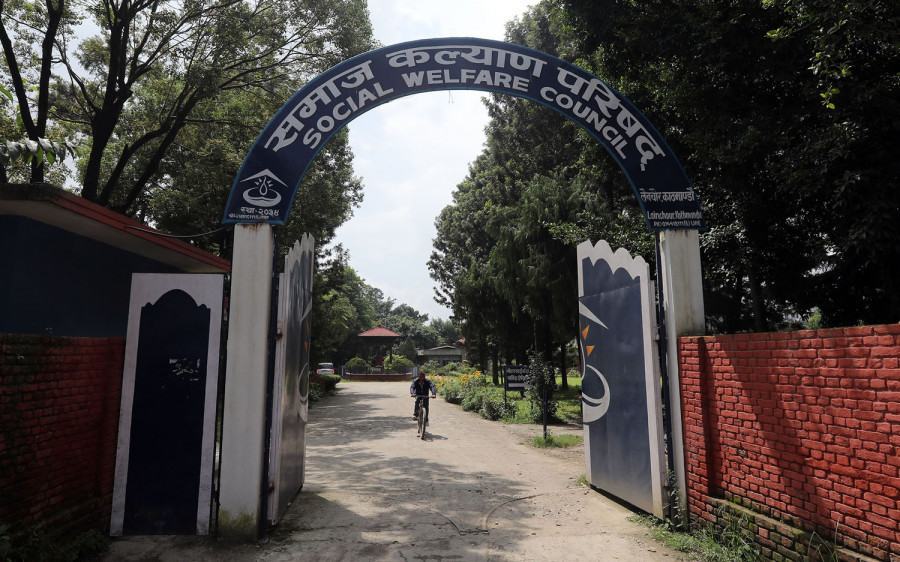National
Social Welfare Council to monitor all projects run by Nepali non-governmental bodies
To facilitate the monitoring, the council has decided to charge fees to the non-governmental organisations before their programmes are approved.
Prithvi Man Shrestha
The Social Welfare Council will monitor and evaluate all the programmes being run by local non-governmental organisations.
So far, only one-fourth of the programmes were being monitored and evaluated annually due to inadequate human resources, according to the council officials.
To facilitate the monitoring, the council has decided to charge fees to the non-governmental organisations before their programmes are approved.
The fees, which have been fixed based on programme size, range from Rs5,000 to Rs500,000. For programmes with the budget of up to Rs1 million the monitoring facilitation fee has been set at Rs5,000. Likewise, programmes that are above Rs500 million will be charged Rs500,000.
The fees should be paid to the council before the programme approval, unlike in the past when organisations had to pay the fees just before the monitoring process.
“We are already charging monitoring and evaluation fees to international non-governmental organisations before programme approval. The same provision is being implemented in the case of non-governmental organisations,” said Pushkar Khati, member secretary at the council.
Khati said if organisations are made to pay the fees during the programme approval process, the council will be compelled to conduct the monitoring and evaluation.
The council conducts monitoring and evaluation of around 300 programmes annually. Around 1,200 programmes are approved every year.
Jitram Lama, president of NGO Federation, said the council has been unable to monitor all the programmes run by non-governmental organisations as it was busy looking into the projects under international non-governmental organisations.
“We expect the council to perform its task of monitoring the projects under NGOs as well after its decision to charge fees beforehand during the programme approval process,” Lama said.
The council is preparing to mobilise university students for the project monitoring and evaluation of programmes with limited budget.
This, according to Khati, will address the issue of shortage of human resources.
The council has signed memoranda of understanding with five universities for the purpose.
“We are also preparing to sign similar MoU with other universities as well,” said Khati.
The new system is also expected to ensure transparency.
“NGOs won’t be able to influence the evaluators for favourable reports under the new system. We hope the council’s new measure will discourage such tendencies,” said Lama.
There are a total of 51,513 local NGOs affiliated with the council. But, over 100,000 have been registered at the District Administration Office as of fiscal year 2017-18, according to the Office of Auditor General.
The government has been more assertive to regulate local and international non-government organisations in the recent years.




 14.24°C Kathmandu
14.24°C Kathmandu















